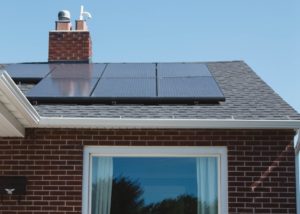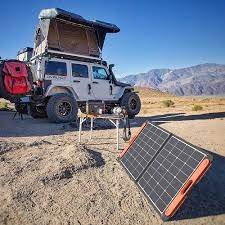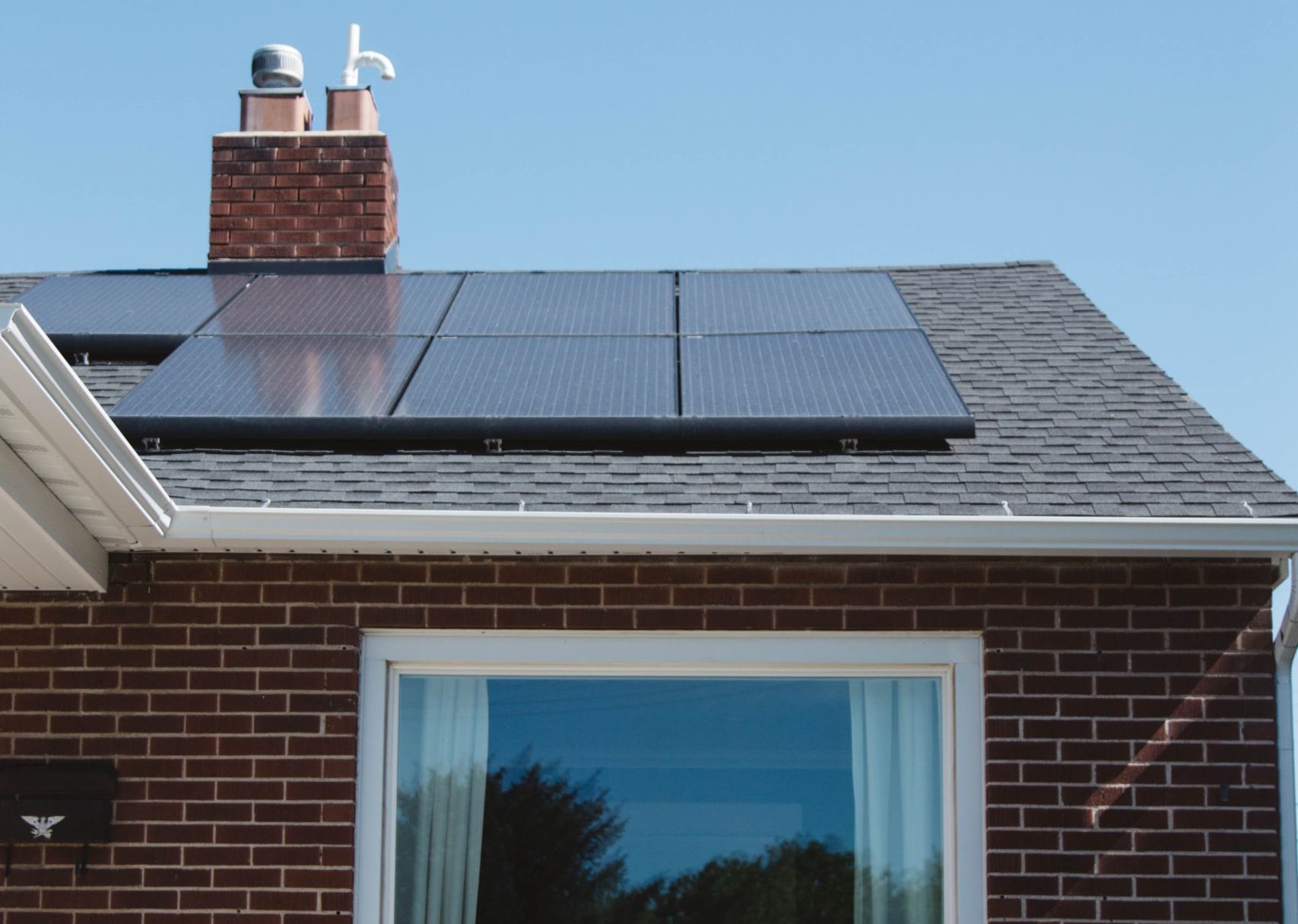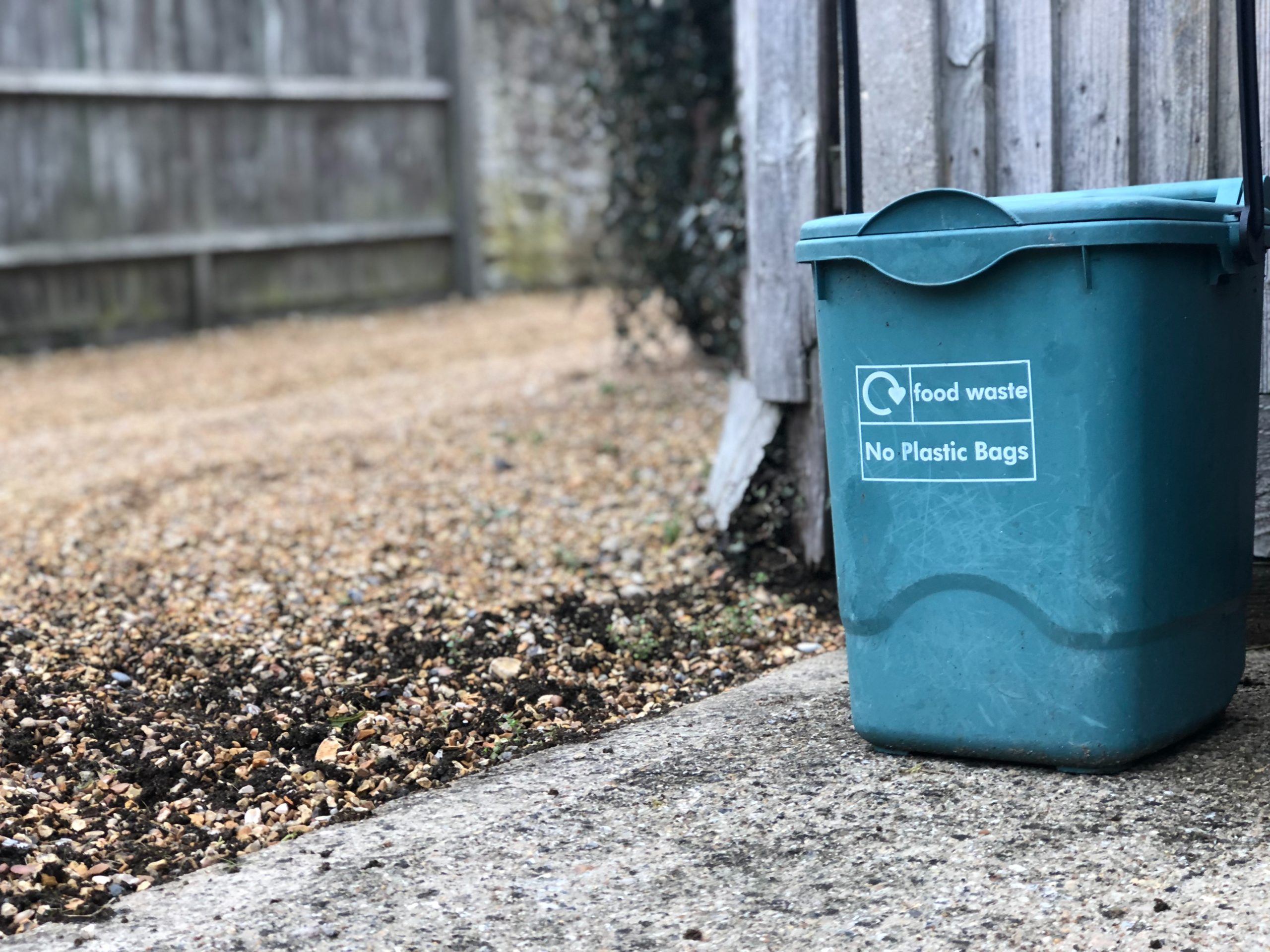Solar Energy at Home, Rooftop and Portable
by Danielle Dorchester
Last updated: June 21, 2021
Solar energy at home is an exciting opportunity that gets more attainable every day. In addition to offering a clean source of electricity to address our increasing dependence, it also offers potential utility bill savings. It’s easy to get swept up by the idea of doing something beneficial for the environment and saving money, but there are some things to think about before starting your transition to solar energy.
Many solar installation companies offer complex, confusing solutions, and where you live can dramatically impact the price you pay and other benefits. We’re going to share considerations for using rooftop solar at home, and how to get started with clean energy today – even if you’re not ready for rooftop installation.
How Does Rooftop Solar Work?
The most widely implemented solar panels are photovoltaic (PV) panels. They turn the sun’s UV rays into electricity, and are connected to your home system and/or your community’s electricity grid. Recently, this technology has become much more affordable and accessible.
The energy you generate from the sun can also be funneled back into the city power grid, so in addition to fueling your house, you’re producing energy for other homes in your community. This practice is called net-metering. In many states the process is free, allowing you to run your meter in reverse to sell your excess energy to the city.
The efficiency of solar panels has drastically improved in the last ten years, and during that time, government incentives have resulted in a range of solar investment opportunities, new companies, and technology upgrades. Buying solar panels can be a great long-term investment, but it can also be a stressor if not implemented well.
Buying Rooftop Solar
As with every other business, solar panel companies determine pricing. Since the sun’s rays are free, you should save money on your electricity bill after installing solar panels. Ideally, you should save a solid chunk of change. If the quoted solar panel monthly lease or purchase payment is more expensive than your former electricity bill, look elsewhere.
While many companies can install solar panels for you, depending on where you live, owning them once they’re installed can be another story. A lot of companies practice leasing with rooftop solar. Leasing your solar panels is a lot like leasing a car, you make monthly payments to your solar company instead of paying a monthly electric bill. However, you never own the panels unless you buy them out on top of that lease.

Buying your own panels is more financially beneficial, and as of June 15, 2021 home buyers, and businesses, are eligible for a federal tax credit equal to 26%. of the cost of the solar panels. Note: these tax benefits go to the solar installation company if you lease panels. Many states provide solar tax incentives, in addition to the federal one. At solar-estimate.org you can view incentives available in your state and calculate lifetime solar energy savings.
If states continue to offer tax credits to encourage adoption of solar energy, competition will lead to more affordable solar panels, which is one reason environmental activism remains so important. The organized efforts to encourage states to switch to green energy consistently benefits consumers.
But what if you’re not quite ready to make that investment?
Clean Solar Energy with Jackery
I’m not quite in the financial position to get rooftop solar quite yet, so we went hunting for another option.
We’re thrilled at the prospect of clean energy, but the investment in rooftop solar can tally up to the tens of thousands. Though financing options are available, in many states it isn’t quite monetarily worth it. Moreover, you have to own a home before you can think about solar, and even then many communities have building restrictions. Enter Jackery.

Jackery is a relatively new company, focused on personal and portable lithium power stations. In fact, they were first to market in 2015. Since then, they’ve expanded to offer portable solar panels you can use to charge that power station. Finally, you can reap some of the benefits of clean energy at a fraction of the price.
They offer batteries and panels in a range of sizes to fit any need on the go, but since we wanted to try it out in a home setting, we went big. You can affix the solar panels to a window, on top of a car or just out in the grass or on pavement to charge. The battery is impressive, I’ve charged four devices at once without an issue, only using a fraction of its storage. 2020 brought many extreme events, and Jackery saw an opportunity to test their products while helping front line workers. They helped to power mobile homes and facilities for free across the country.
Jackery will be the first to tell you that solar energy and battery storage technology is changing rapidly, and they’re committed to continually improving their offering. We’re extremely impressed by the performance of our battery and panels, and our Work-From-Home office is powered by nothing else!
Solar Energy at Home
If you’re ready to take the plunge into rooftop solar, we encourage you to go for it! Do your research, get a few quotes, and talk with your lawyer or accountant before signing the contract. While solar panels may seem like the obvious choice in the modern era, there are clearly numerous considerations, and solar panels may not be right for you, right now.
If ToDey, like us, you’re not quite ready for rooftop solar, give Jackery a try.



